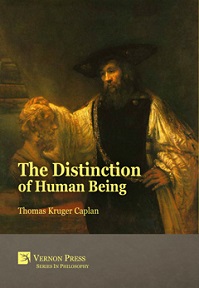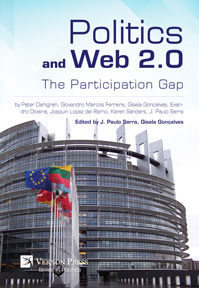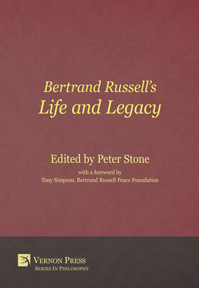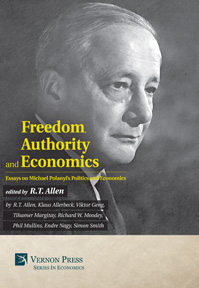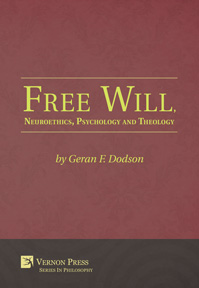The Origins of Liberty: An Essay in Platonic Ontology
by Alexander Zistakis
Purchase this book
(click here to change currency)
Unlike the vast majority of existing literature on Plato, this book seeks to argue that liberty constitutes the central notion and preoccupation of Platonic thought and that his theory of ideas is indeed a theory of liberty. Moreover, this book contends that Plato’s thought can be understood to be both one of liberty and a theory of liberation. Bound up in its efforts to reveal both the ideal liberty and the conditions and possibility of its existence in the so-called ‘real world,’ the thought of liberty tends to be all-encompassing. Consequently, this book seeks to expose how liberty can be understood to influence Plato’s ontological form of analysis in relation to politics, philosophy, and anthropology, as well as its influence on the structural unity of all three.
Understood from such a perspective, this book frames Platonic philosophy as primarily an investigation, an articulation and as a way of establishing the relationship between the individual and the collective. Importantly, this relationship is acknowledged to be the natural and original framework for any conception and exercise of human liberty, especially within democratic theory and politics. By treating Plato’s philosophy as a continuous effort to find modes and dimensions of liberation in and through different forms of this relationship, this book hopes to not only engage in the discussion about the meaning of Platonic ontological-political insights on different grounds, but also to provide a different perspective for the evaluation of its relevance to the main contemporary issues and problems regarding liberty, liberation, democracy and politics.
This book will be of interest to both undergraduate students, experienced scholars and researchers, as well as to the general public who have an interest in philosophy, classics, and political theory.
Foreword
by George Boger
Preface: About this Book
Instead of an Introduction: How to Read Plato’s Dialogues?
PART ONE — FOUNDATIONS OF LIBERTY
Chapter One: Freedom – General and Universal
1. The Will to Freedom
2. The Liberating Truth
3. The Individual and the Communal
Chapter Two: Dialectic of liberty
1. Institutions of Freedom
2. Liberty and Domination
Chapter Three: Participation and Appropriation
PART TWO — IDENTITY, DIFFERENCE AND PARTICIPATION
Chapter Four: Onto-Politics and Political Ontology
Chapter Five: Equality and Difference
1. Differential Equality
2. Philosophical Education and Political Consciousness
Chapter Six: The Good – Rationality, Totality, Dialectic
1. The Rationality of the Good
2. The Totality of the Good – The Conception of methexis
a) The Concept of methexis in the Parmenides
b) The Sophist – symplokê and the Hierarchy of Ideas
3. The Dialectical Nature of the Good
Excursus: The Time of Liberty
PART THREE — PLATO AND DEMOCRACY
Chapter Seven: Justice, Politics and Philosophy
1. Justice
2. Politicizing Philosophy
3. Philosophizing Politics
Chapter Eight: Foundations of Responisbility
1. Psychology of the Political
2. Theoretical Responsibility and Practical Accountability
Chapter Nine: The Politics of Virtue
1. Theoria, Praxis and Techne
2. The Virtue of Citizenship
Chapter Ten: Dialectic of Liberty Revisited – Democracy and Politeia
1. Plato and Democracy, Ancient and Modern
a) Dêmos
b) Qualifying for Politics
c) Consensus
2. Platonic Anti-Platonism
Epilogue: Liberty in the Polis
Selected Bibliography
Index of Names
Alexander Zistakis has a PhD in Philosophy from the University of Athens and has taught humanities in Europe and the Middle East for more than twenty years. He has actively contributed to graduate and open international seminars in ancient philosophy in Athens as well as participating in numerous conferences and symposia on ancient and contemporary philosophy. Notably, Zistakis has authored several books and numerous papers, which have been published across three continents (Europe, America, and Africa). He is currently a member of the editorial board of Phronimon (South African Journal for Greek Philosophy and Humanities) and the Journal of Philosophical Criticism (Italy). His major research interests include ancient and contemporary philosophy, political theory and aesthetics and communication.
Plato, liberty, freedom, participation, appropriation, theory of ideas, time, politics, statesman, democracy, liberalism, praxis, justice, citizenship, responsibility, accountability, virtue, dialectic, equality, individual, collective, communal
See also
Bibliographic Information
Book Title
The Origins of Liberty: An Essay in Platonic Ontology
ISBN
978-1-62273-487-0
Edition
1st
Number of pages
424
Physical size
236mm x 160mm

![The Origins of Liberty: An Essay in Platonic Ontology [Paperback]](/file/6603/0592d646b9523577b1eec4bf555b833d/1537363892.jpg)

